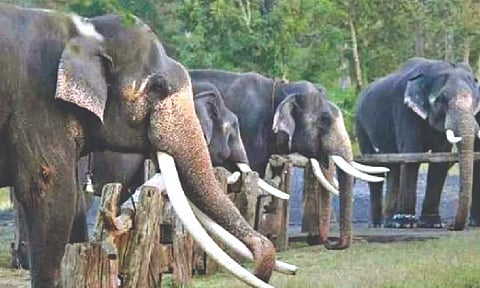

CHENNAI: Mudumalai National Park and Theppakadu Elephant Camp have been nominated for UNESCO World Heritage Site by the State Forest Department, with an eye towards international collaboration and support in study, conservation, and protection.
According to a bid document released by the department, a feasibility study will be conducted by a select agency to assess the potential and provide recommendations for Mudumalai National Park and the Elephant camp to be recognised as a UNESCO Heritage Site. The feasibility report will have a comprehensive analysis of various factors, such as assessment of cultural and natural significance, habitat connectivity among others, offering recommendations and action plans to address any gaps or challenges in meeting the criteria for UNESCO World Heritage designation.
Established in 1940, Mudumalai National Park holds cultural significance rooted in the traditions and practices of indigenous communities that have called the land home for generations. The park is a living testament to the seamless integration of human communities with nature. On the other hand, Theppakadu Elephant camp is the oldest elephant camp in Asia.
This elephant camp was established 100 years ago. This elephant camp has 28 elephants including 2 calves at present. In this elephant camp, elephants are mainly used as ‘Kumkis’ to mitigate Human – Wild animal conflicts and also to drive wild elephants as well as in wild animal capturing operations, Forest Monsoon patrolling, eco-tourism, elephant conservation, Education and others.
The document added that the Western Ghats and Mudumalai play a pivotal role in providing essential ecosystem services to the surrounding region. These services include water purification, carbon sequestration, and sustaining local livelihoods, protection and recognition of this area as a World Heritage Site would underscore its importance in maintaining ecological balance.
“Beyond its ecological importance, the region has significant cultural and historical value. The indigenous communities living in and around Mudumalai have a deep connection with the land, and their traditions, customs, and knowledge systems are integral to the cultural heritage of the area, “ it said.
The designation as a World Heritage Site would bolster existing conservation efforts within the region.
It would attract global recognition and funding, enabling the implementation of more effective conservation measures and anti-poaching efforts, the department expects. An application will be made to UNESCO after the study.